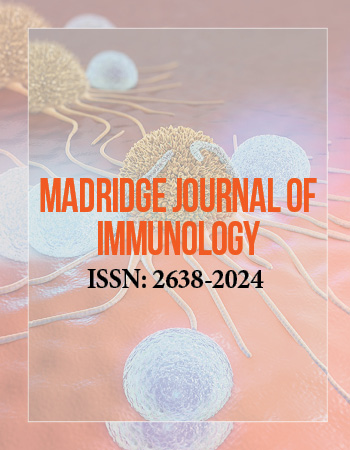International Conference on Immunology and Immunotechnology
November 1-3, 2017 Barcelona, Spain
Charged Amino Acid-Rich Leucine Zipper-1 (Crlz-1) as a Target of Wnt Signaling Pathway Controls Pre-B Cell Proliferation by Affecting Runx/CBFβ-Targeted VpreB and λ5 Genes
1Infectious Disease Research Center, Korea Research Institute of Bioscience & Biotechnology, Republic of Korea
2Kyung Hee University, Republic of Korea
The proliferation of pre-B cells is known to increase further the clonal diversity of B cells at the stage of pre-B cells by allowing the same rearranged heavy chains to combine with differently rearranged light chains in a subsequent developmental stage. Crlz-1 (charged amino acid-rich leucine zipper-1) was found to control this proliferation of pre-B cells by working as a Wnt (Winglessrelated MMTV integration site) target gene in these cells. Mechanistically, Crlz-1 protein functioned by mobilizing cytoplasmic CBFβ (core binding factor β) into the nucleus to allow Runx (runt related transcription factor)/CBFβ hetero-dimerization. Runx/CBFβ then turned on its target genes such as EBF (early B cell factor), VpreB and λ5 and thereby pre-BCR (pre-B cell receptor) signaling leading to the expression of cyclins D2 and D3. Actually, the proliferative function of Crlz-1 was demonstrated by not only Crlz-1 or β-catenin knock-down but also Crlz-1 overexpression. Furthermore, the mechanistic view that the proliferative function of Crlz-1 is caused by relaying Wnt/β-catenin to pre-BCR signaling pathways through the regulation of Runx/CBFβ hetero-dimerization was also verified by employing niclosamide, XAV939 and LiCl as Wnt inhibitors and activator, respectively.
Biography:
Sung-Kyun Park received his PhD in Immunology from Kyung Hee University in 2011, working with Prof. Chang-Joong Kang and then worked as a postdoctoral researcher with Drs. William Garrard and Nicholas Conrad at University of Texas Southwestern Medical Center in 2016. He is currently Researcher as a principal investigator of Infectious Disease Research Center at Korea Research Institute of Bioscience and Biotechnology (KRIBB). He has contributed greatly to the understanding of molecular mechanisms in B cell development and function. Now, his work is also focused on finding new mechanism for the regulation of B cell function especially in metabolic syndrome.


